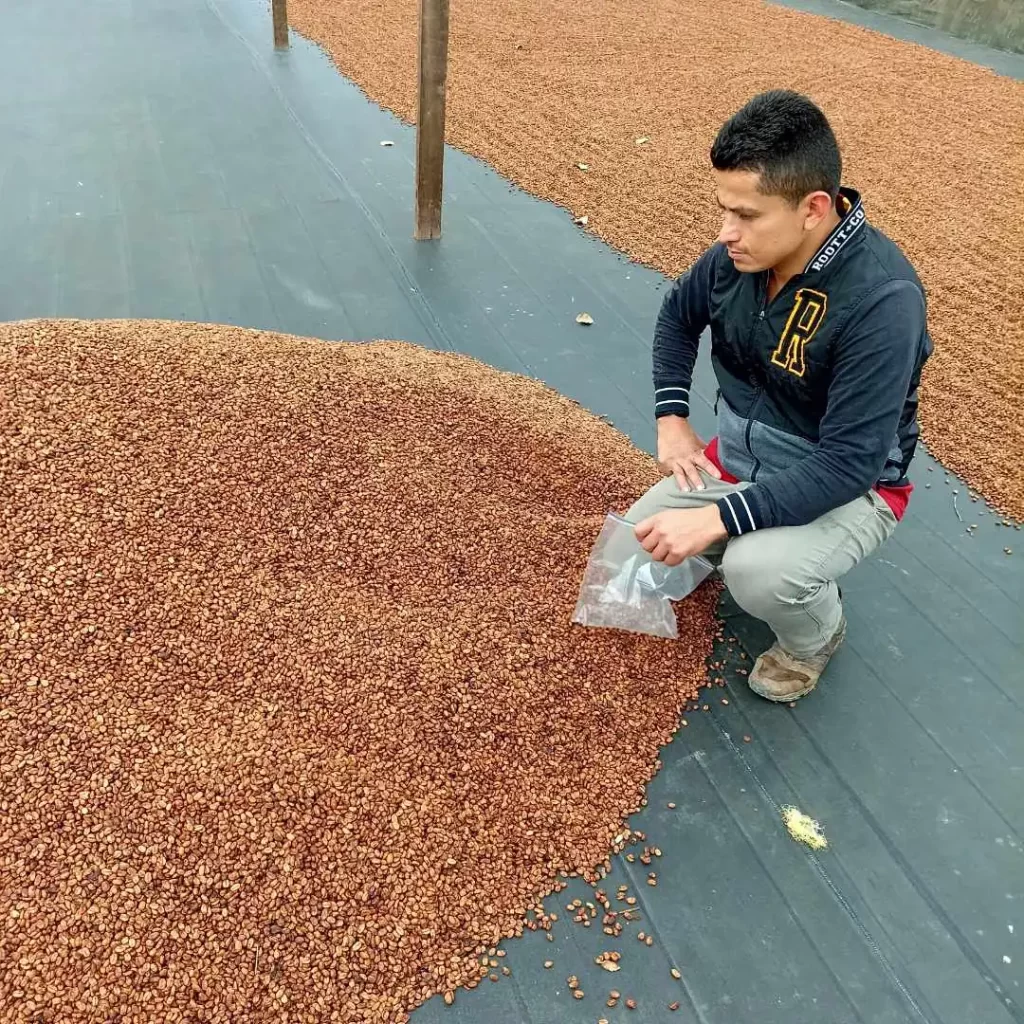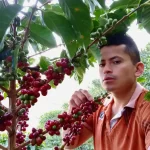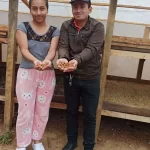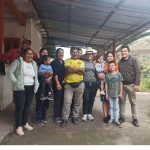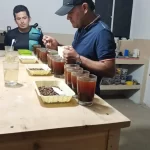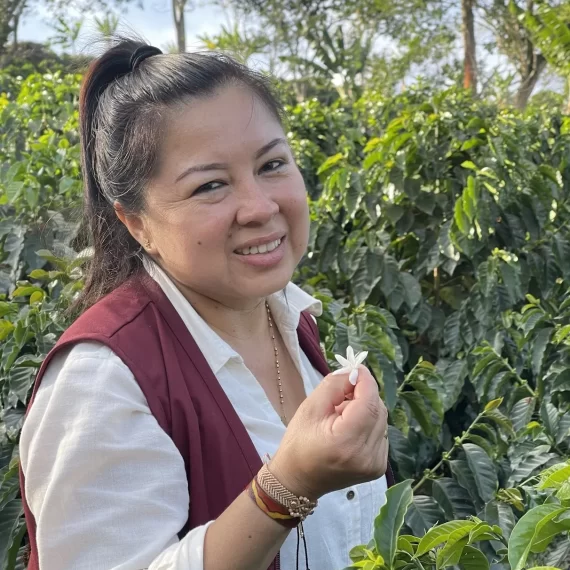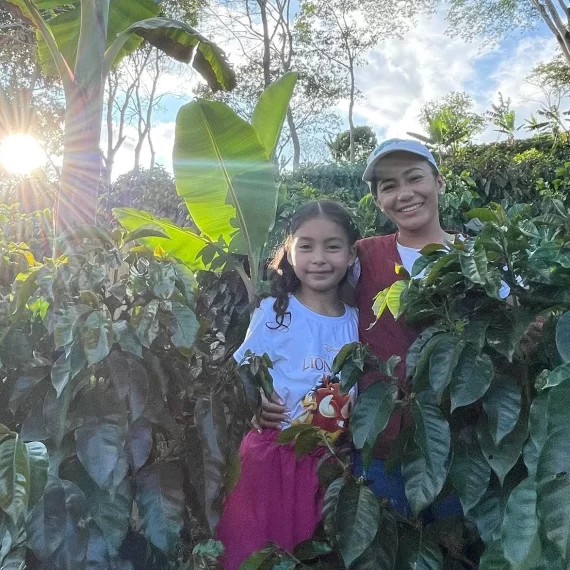
Kaizen – Andrés Julian Ortiz
Julian is the brother of William, with whom we have been collaborating since Chicas was founded in 2020. Like William, Julian continues the family tradition of coffee farming, representing the third generation of farmers. Their father, Libardo, embodies the traditional Colombian farmer with his washed processes and conventional varieties. Julian and William, on the other hand, represent a new generation, experimenting heavily with coffee processes and planting new varieties. For example, they’ve been working with the Geisha variety for three generations now, with the only change being in the processing methods.
Julian and William explain: “We’re constantly attending courses and training sessions, as we’re committed to improving the quality of our coffee’s flavor profile. That has always been our priority. We’ve started delving into various fermentation processes, but we have to admit, it’s not easy to change the mindset of our parents. We completely understand, though, given that they’ve always worked with traditional approaches.”
William adds: “I see it as a mistake that we don’t look for added value in coffee cultivation. That’s why I decided to focus on this. Little by little, we’ve started seeing the first results. With a lot of effort and determination, I’m now taking care of my own coffee plants. I’ve managed to afford a small piece of land and a few trees for myself and my brother. This allows me enough freedom to start experimenting with new fermentation processes. Thanks to this, we’ve begun achieving better flavor profiles, and today I’m mainly focusing on standardizing these fermentation techniques.”
The farm has been in the family for two generations. The family moved to this area and began growing coffee around 1965. Since 2009, they’ve owned this specific farm, which also serves as their home. Currently, the farm is run by Libardo Ortiz and his wife, along with their two eldest sons, Julian and William.
About the coffee
William is a passionate experimenter with a big heart. With great determination, he dives into lactic and carbonic fermentations. He finds inspiration on social media as well as through training sessions, and together with his brother Julian, they continue to push the boundaries of fermentation processes even further.
The process begins with the harvesting of coffee cherries, carried out by our helpers. Their task is to ensure that only ripe cherries are picked, which is crucial for the success of the entire process. Thanks to their meticulous work, we can guarantee an 80% success rate in our specialized processes right from the start.
After harvesting, the coffee cherries are placed into transparent plastic bags, where anaerobic fermentation takes place at a temperature of 18 degrees Celsius for two days. The cherries are then transferred to containers, where oxidation occurs for another two days. After this, drinking water is added to the containers, fully covering the coffee mass, and left for another two days. Following this period, the water is removed, and the coffee moves into the drying phase.
The entire process takes place on the Kaizen farm and lasts approximately 25 days from harvest to the completion of drying. During fermentation, nothing other than drinking water is added, ensuring that the resulting coffee flavor remains clean and authentic.
The process begins with the harvesting of coffee cherries, carried out by our helpers. Their task is to ensure that only ripe cherries are picked, which is crucial for the success of the entire process. Thanks to their meticulous work, we can guarantee an 80% success rate in our specialized processes right from the start.
After harvesting, the coffee cherries are placed into transparent plastic bags, where anaerobic fermentation takes place at a temperature of 18 degrees Celsius for two days. The cherries are then transferred to containers, where oxidation occurs for another two days. After this, drinking water is added to the containers, fully covering the coffee mass, and left for another two days. Following this period, the water is removed, and the coffee moves into the drying phase.
The entire process takes place on the Kaizen farm and lasts approximately 25 days from harvest to the completion of drying. During fermentation, nothing other than drinking water is added, ensuring that the resulting coffee flavor remains clean and authentic.


